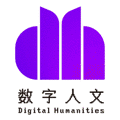您正在访问旧版存档页面。This is the old version archive of our site.
Interpretable Outputs: Criteria for Machine Learning in the Humanities
作者:James Dobson, Dartmouth College
转载来源:Digital Humanities Quarterly, 2021, Volume 15 Number 2, http://www.digitalhumanities.org/dhq/vol/15/2/000555/000555.html
那些将自己理解为主要人文主义的学科和领域长期以来对探索我们对象中的细微差别、不确定性和模糊性有着特殊的兴趣。虽然数据驱动的研究可能经常被认为与这些概念相反,但事实并非如此。事实上,数据可能有助于发现和预测歧义。然而,随着计算方法,尤其是那些设计用于对大规模文本档案进行操作的计算方法,越来越多地进入此类人文主义者的工作,存在无法访问那些模糊维度的数据的风险。
作者简介:
James Dobson
James E. Dobson is an assistant professor of English and Creative Writing and the Director of the Institute for Writing and Rhetoric at Dartmouth College. He is the author of Critical Digital Humanities: The Search for a Methodology (Illinois, 2019) and Modernity and Autobiography in Nineteenth-Century America (Palgrave, 2017) and the co-author of Moonbit (punctum books, 2019).
